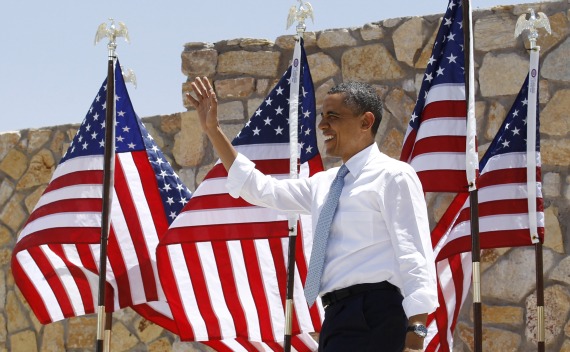Can Business Change the Immigration Debate?
More on:

Framed by sunny El Paso skies, President Obama put immigration back firmly on center stage yesterday. In his speech he called on Congress to “put politics aside” and find “common ground” in order to reform a broken system. His justifications are similar to those of the past – immigration reform is both an economic and moral imperative, as important for the future competitiveness of our country as for our understanding of ourselves as Americans. The basic outline for reform is also similar to the last legislative round in 2007 - tougher penalties against businesses employing undocumented workers; temporary worker programs; a path to citizenship for those living in the shadows requiring applicants to pay penalties, taxes, and learn English; legal status for American college graduates hoping to start businesses here; and citizenship for young people brought to the U.S. as children who go on to college or serve in the military (the so-called DREAM Act).
What is different this time around is that in reopening the debate, Obama explicitly called on a constituency that remained decidedly quiet during the last polarizing round: business. In his speech, he singled out and quoted as many businessmen as immigrants. Alongside the voices of immigrants serving in the U.S. marines and navy, Obama added those of Bill Gates and Rupert Murdoch. He went on to mention some of the largest corporations founded by immigrants - Google, Intel, Yahoo and Ebay –which add billions of dollars and thousands of jobs to the U.S. economy.
An eloquent speech in and of itself will change few minds, particularly as the 2012 Presidential election season nears. But if it would open the deep pockets of the private sector, it could perhaps make a difference. Of any constituency business has a cross-cutting power to pressure for the necessary reach across the aisle. And openness to immigration reform seems to span the private sector – from agriculture to high tech, from small businesses to the largest corporations, from the coasts to the center. Even the U.S. Chamber of Commerce – a consistent Obama critic – agrees with the President on the issues and has been pushing these types of reforms for a decade.
Comprehensive immigration reform is a long shot. The hostility of a vocal portion of the electorate will still likely hold the political process hostage, at least until after the 2012 election. But involving the quite powerful groups sitting on the sidelines is the way to give reform its best chance.
More on:
 Online Store
Online Store